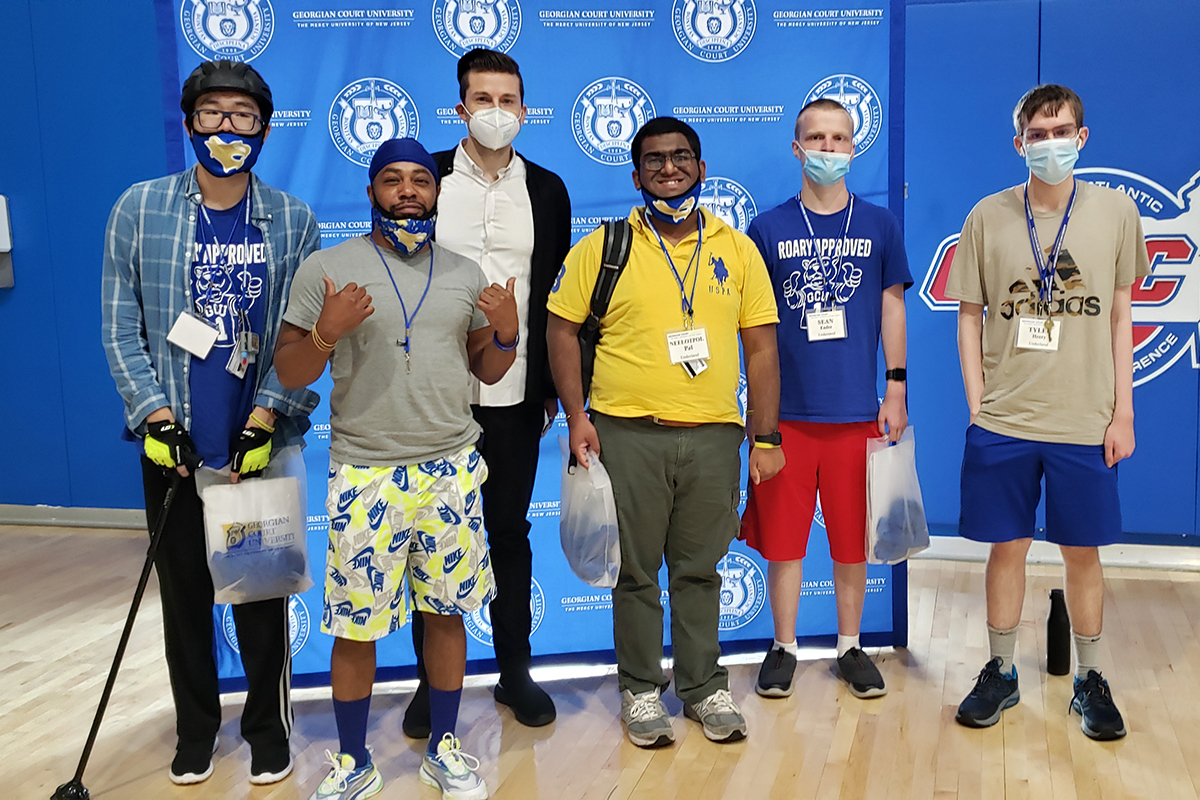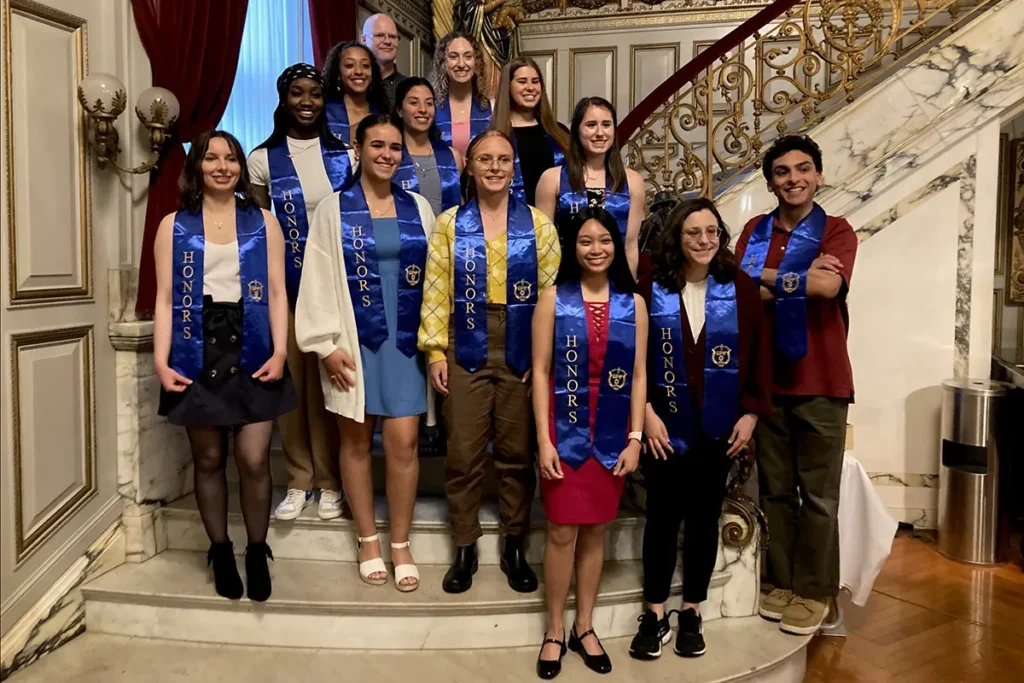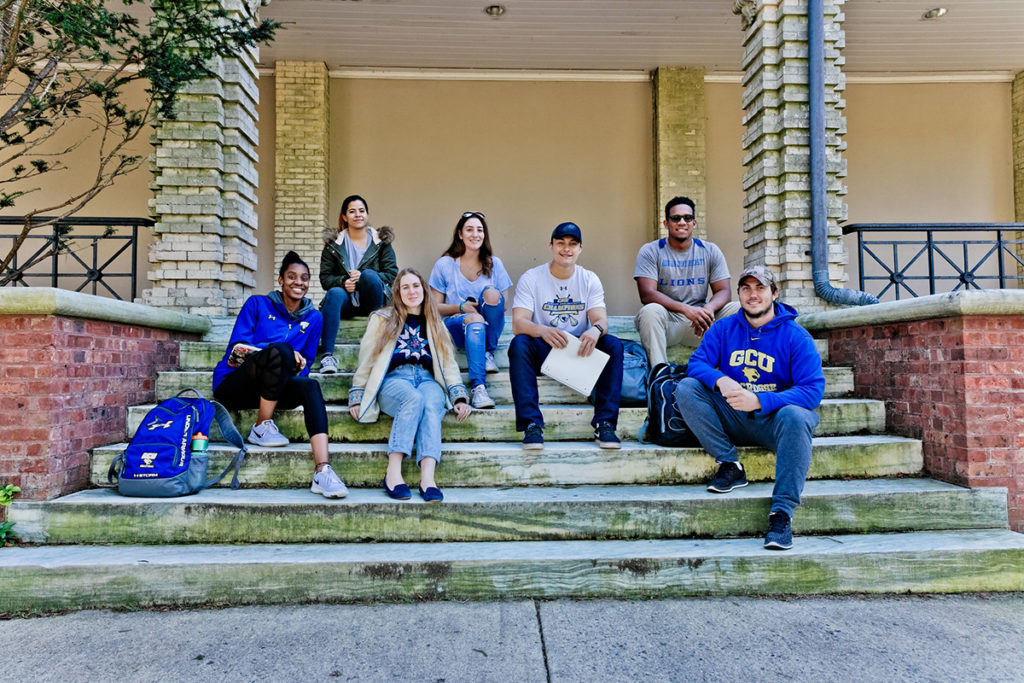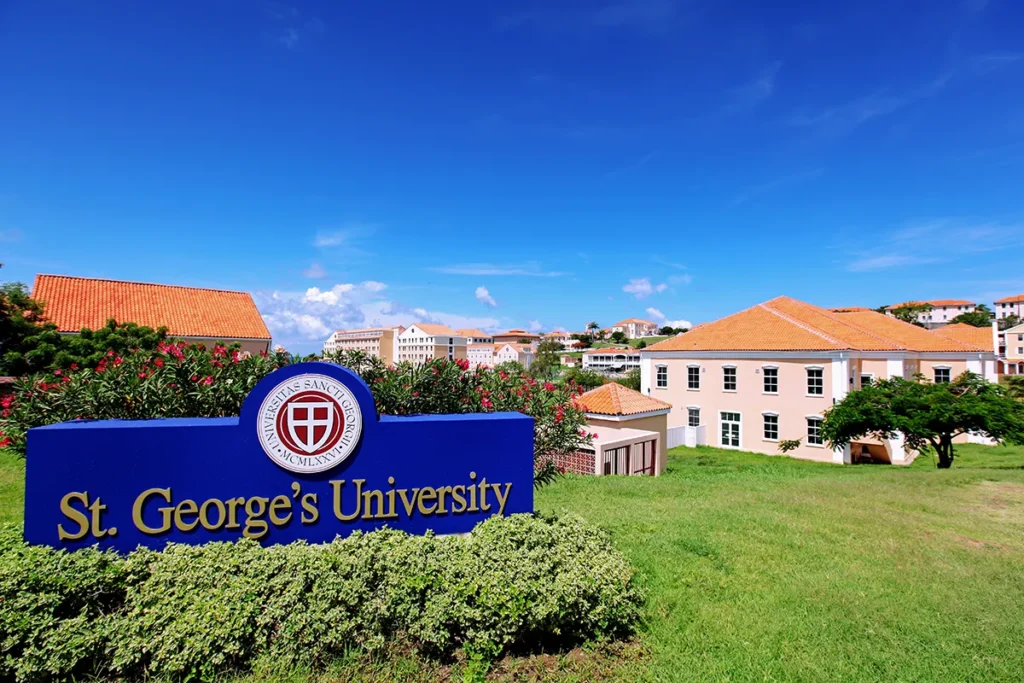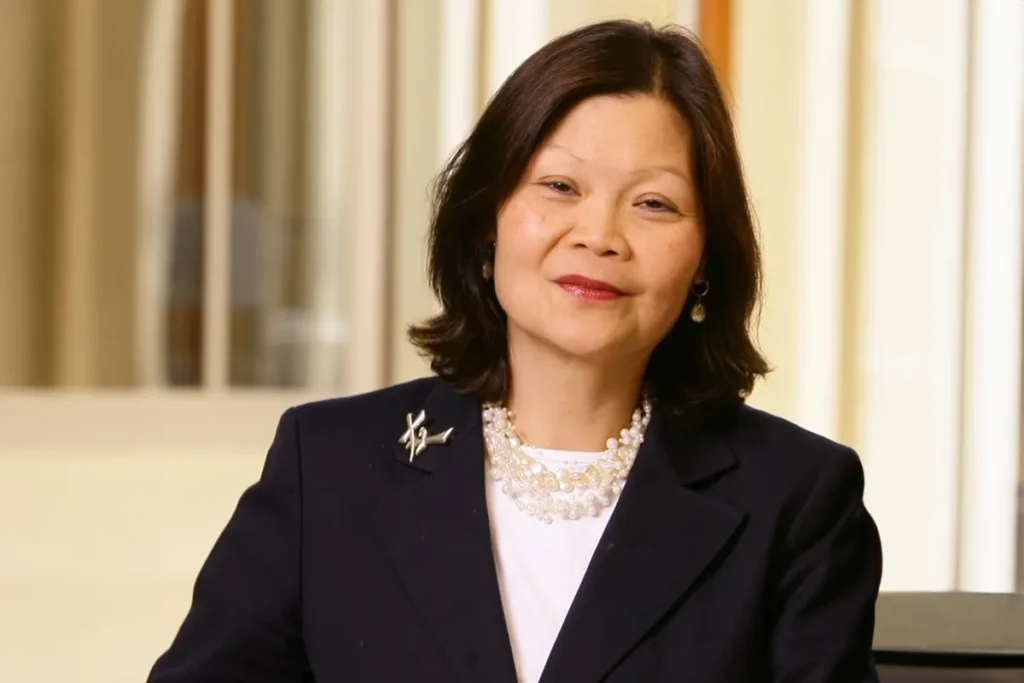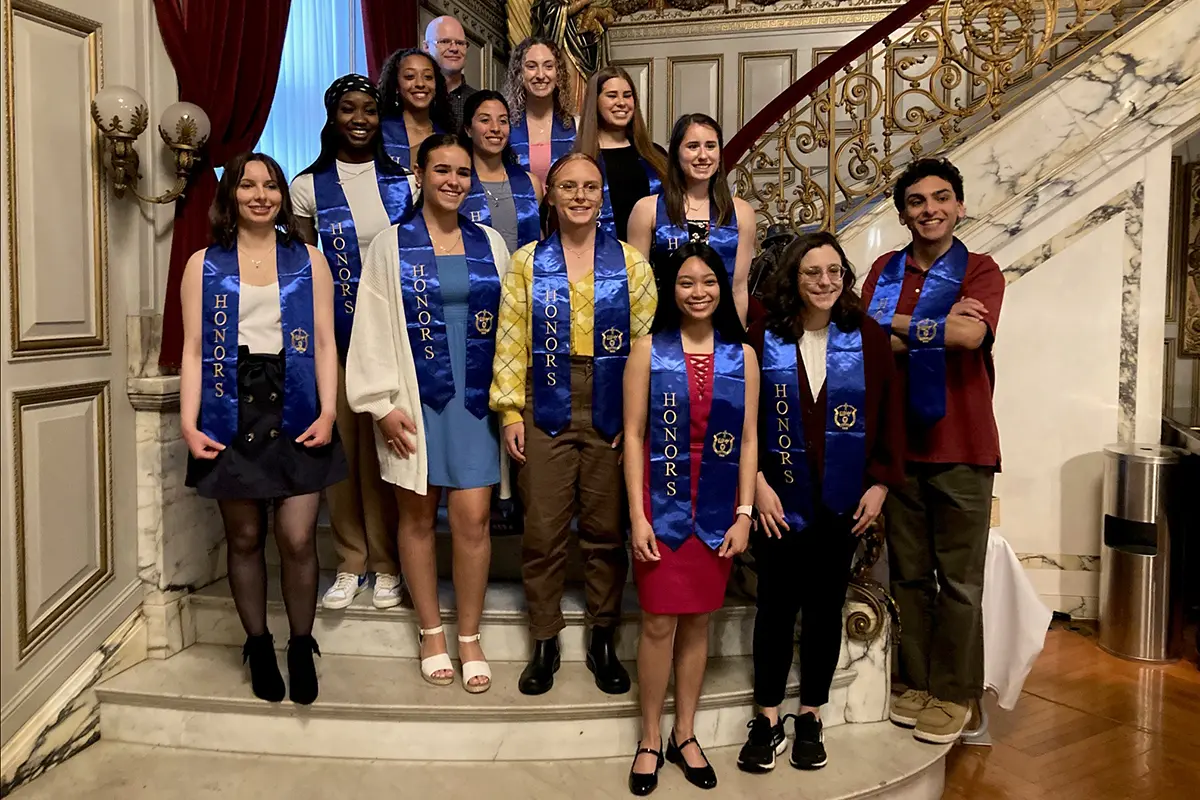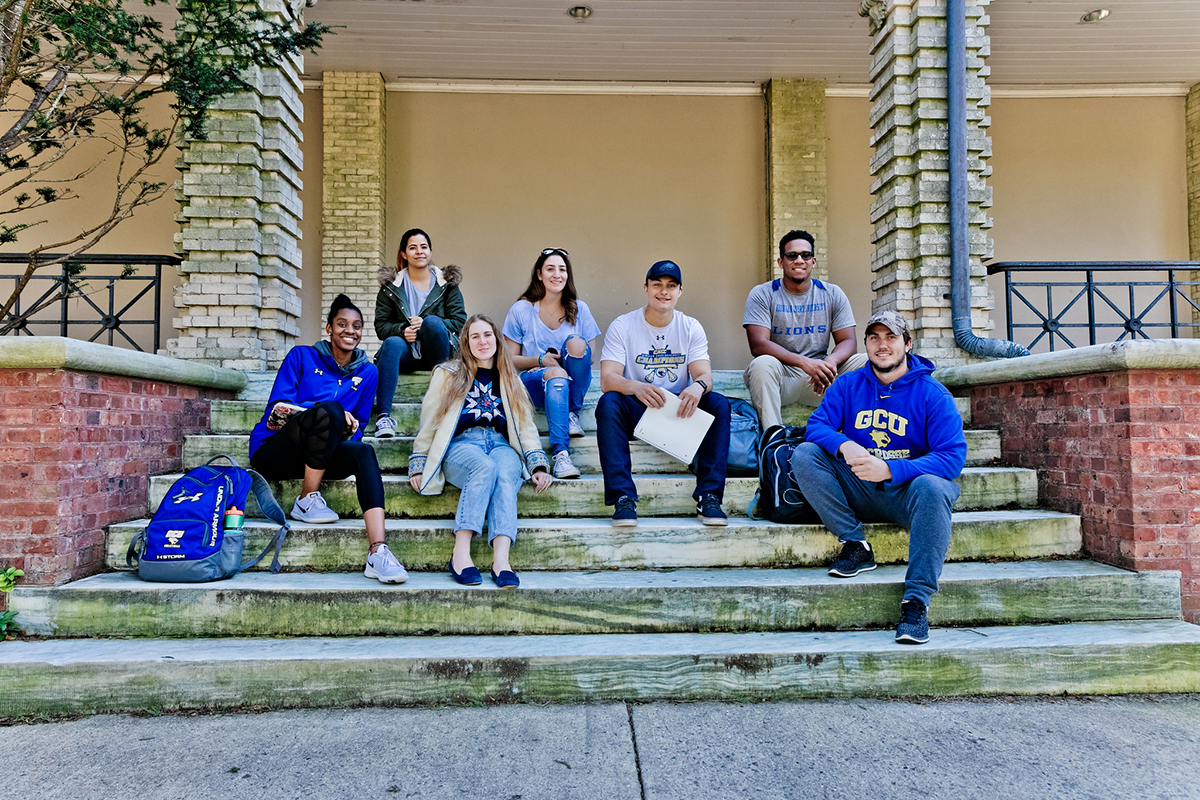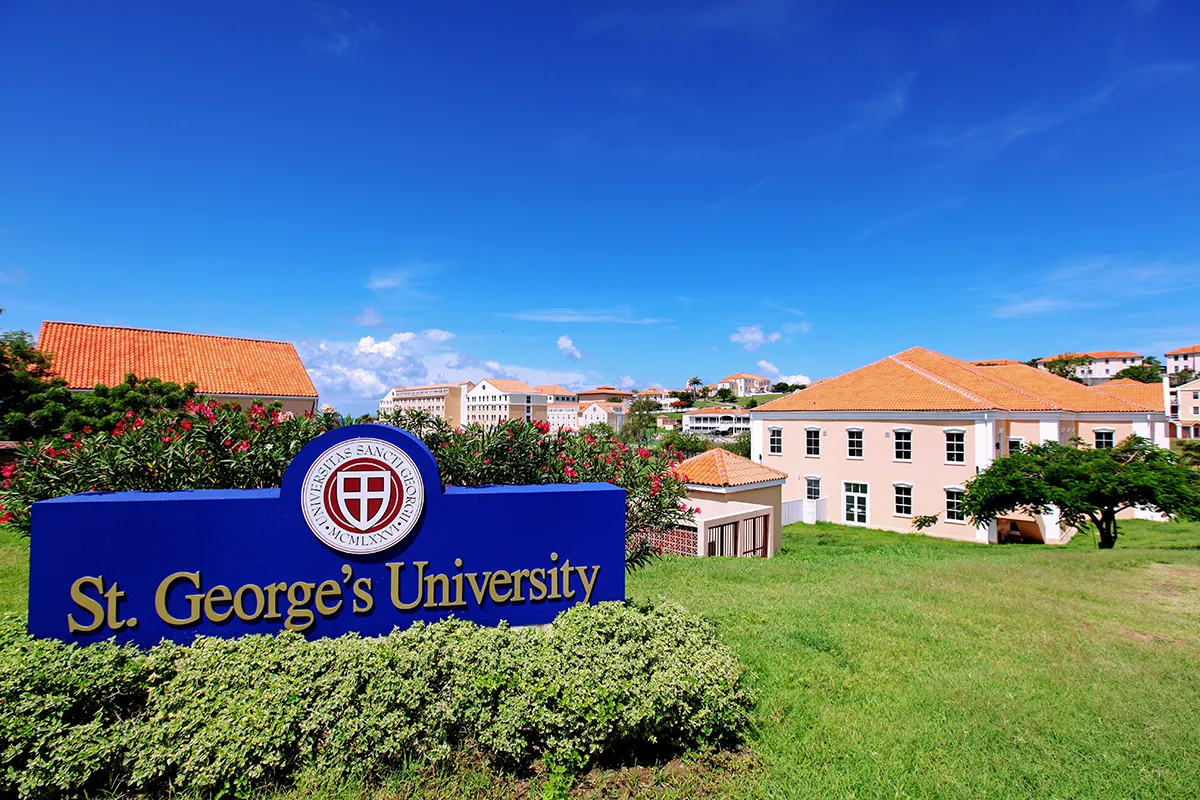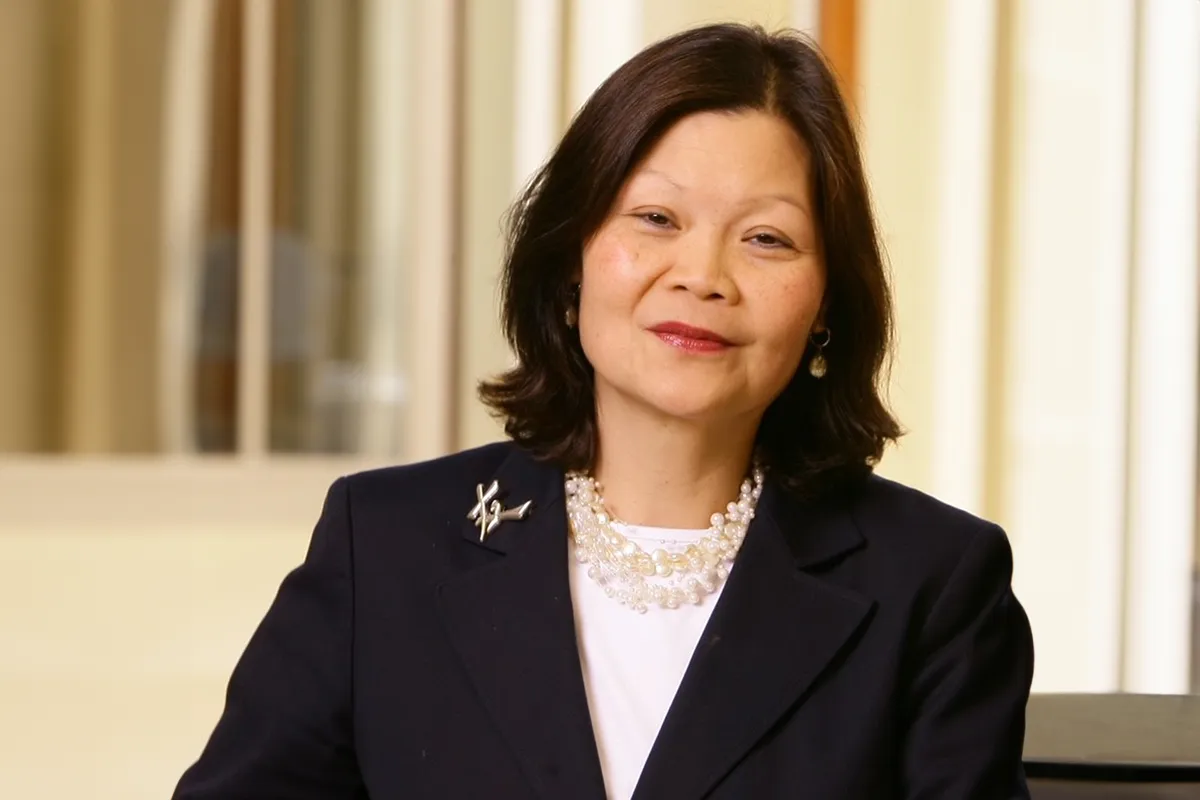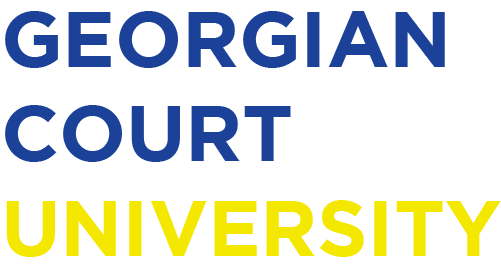Transition and Career Studies (TCS), a new Georgian Court University inclusive education program for students with intellectual disabilities, is well underway. Curriculum is approved, staff are hired, residential living plans are complete, and faculty are being trained. The first few students are already enrolled, too, says program director Susan E. O. Field, Ph.D.
Last fall, Georgian Court University was awarded a nearly $2.5 million grant for the program through the federal Transition and Postsecondary Programs for Students with Intellectual Disabilities. For qualified students, TCS provides an opportunity to learn in college classrooms, live on the GCU campus, and engage with typically enrolled students through clubs, sports, and campus events. At the end of four years, successful TCS students receive a Board of Trustees-approved certificate of completion.
“Students with intellectual disabilities who complete college-based programs like ours are more likely to be gainfully employed than those who do not,” says Dr. Field, a GCU professor of psychology. “They’re more likely to live independently. We want them to grow intellectually, but we also want them to grow socially. And we want them to develop vocational skills and to identify and obtain not just a job, but a career.”
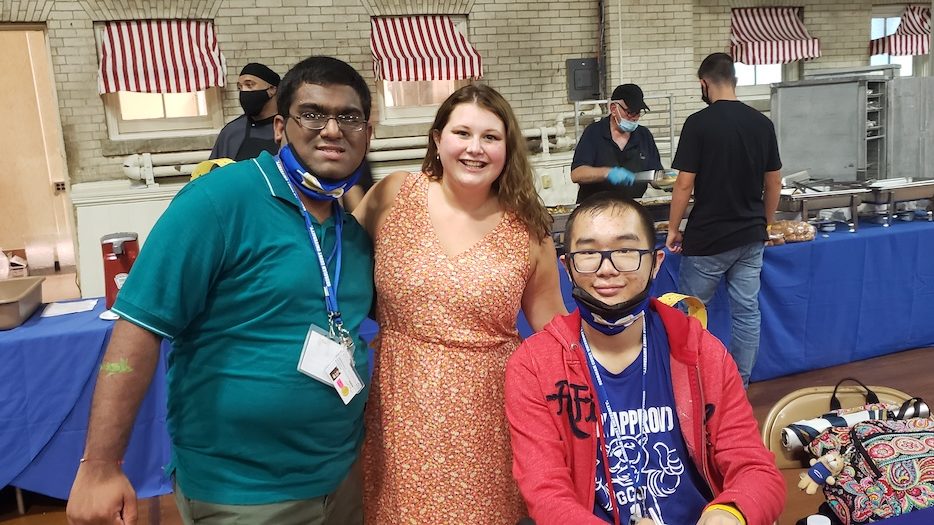
Transition and Career Studies—A Model Approach to Inclusive Education
To accomplish these goals, Dr. Field has led the creation of TCS with guidance from her mentor, Jerry G. Petroff, Ph.D., who has run a similar initiative at The College of New Jersey (TCNJ) for 18 years, and input from an intern who completed the TCNJ program. A GCU multi-department steering committee, including representatives from academic affairs and student life, as well as students, has also been instrumental in shaping TCS.
“It’s been like developing a new major from scratch, or even a new school,” Dr. Field said.
TCS students enroll in classes from GCU’s General Education sequence, such as literature and history, choose electives, and take specially designed career and academic/social support courses. In the fourth year, they have an off-campus internship.
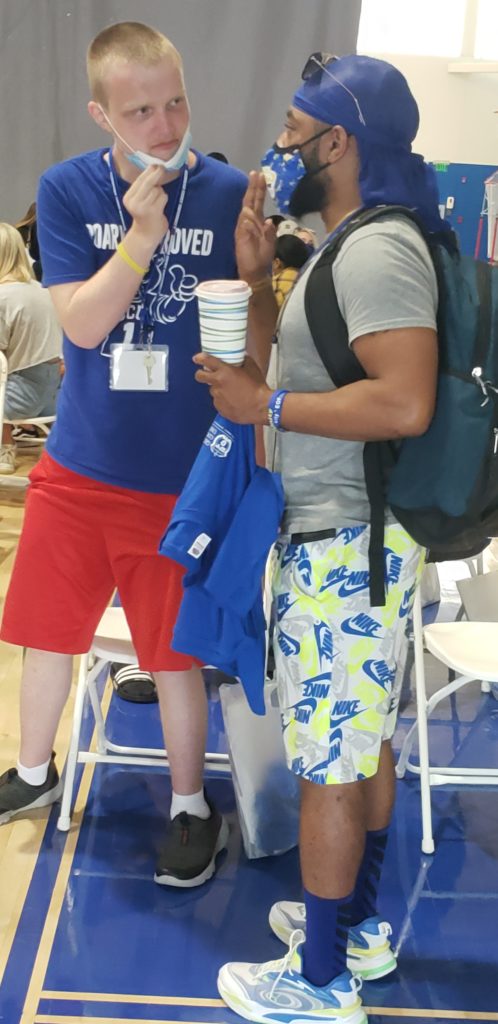
“All of the General Education and elective courses are taught on an inclusive model, meaning typically enrolled students and TCS students are side-by-side in the classroom,” said Dr. Field. Because of their intellectual disabilities, TCS students receive what she describes as “beyond reasonable accommodations on a case-by-case basis depending on the needs and skills of the individual student.” For example, if a course requires a weekly paper, a TCS student might need to complete only three or four papers during the semester.
Each TCS student is paired with a typically enrolled GCU student, who attends classes and campus events with them, providing both academic and social support. TCS is a residential program, so participants live in a residence hall with their own residential advisor (RA). This year, their RA is Cheyenne Hunsberger, a nursing major, student-athlete, and president of Unified Sports, and a member of the TCS steering committee.
Applying for TCS
Currently, the initial TCS class includes four students, and inquiries continue to come in. An application and additional program details can be found on Georgian Court’s TCS website. Two important criteria for candidates are (a) they must meet the definition of intellectual disability and (b) be able to independently manage daily care activities, including self-administration of medication, if any.
Support for TCS
Georgian Court University is grateful to the early funders of this endeavor, including GCU Trustee Robert Hutchins, CEO of Ellavoz Impact Capital, a social impact private equity management firm. Mr. Hutchins has provided support for student scholarships.
Corporate and foundation support is provided by Kessler Foundation, a global leader in rehabilitation research and employment funding. The Kessler Foundation is supporting the salary of the campus life coordinator. TD Charitable Foundation is providing general support of TCS. TD Charitable Foundation, the philanthropic arm of TD Bank, strives to serve the individuals, families, and businesses in all the communities where TD Bank operates.

